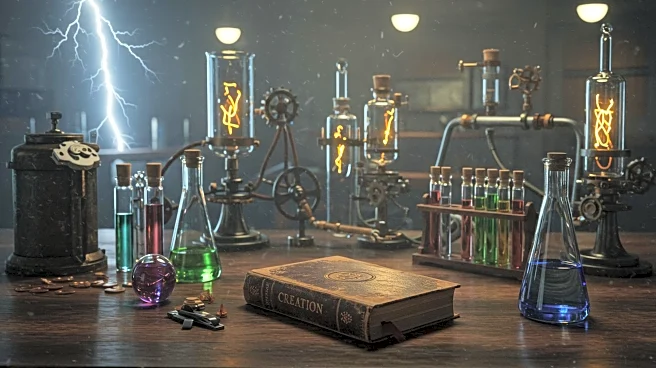What's Happening?
Netflix is set to release a new adaptation of 'Frankenstein,' directed by Guillermo del Toro and starring Jacob Elordi and Oscar Isaac. The film, which cost $120 million to produce, reimagines the classic horror story as a complex family drama rather than a traditional horror movie. Elordi plays the creature, while Isaac portrays Victor Frankenstein, the scientist who creates him. The film explores themes of parental influence and the psychological impact of upbringing, with del Toro drawing inspiration from various cultural sources, including telenovelas and opera. The film will premiere at the Venice Film Festival before a limited theatrical release and subsequent streaming on Netflix.
Why It's Important?
This adaptation of 'Frankenstein' represents a significant investment by Netflix in high-budget, auteur-driven projects. By choosing to reinterpret a well-known story through a psychological and familial lens, the film could attract a diverse audience interested in both classic literature and innovative storytelling. The project's scale and ambition highlight Netflix's commitment to producing cinematic experiences that challenge traditional genre boundaries. Additionally, the film's release strategy, which includes a theatrical run, underscores the ongoing conversation about the role of streaming services in the film industry and their impact on traditional cinema.
What's Next?
Following its premiere at the Venice Film Festival, 'Frankenstein' will have a three-week exclusive theatrical release starting October 17, before becoming available on Netflix on November 7. The film is expected to be a contender in the upcoming awards season, potentially influencing future Netflix projects and their distribution strategies. The reception of 'Frankenstein' could also impact the broader industry, encouraging other streaming platforms to invest in similar high-profile, theatrical-quality productions.
Beyond the Headlines
Del Toro's 'Frankenstein' delves into the ethical and emotional dimensions of creation and parenthood, offering a fresh perspective on the classic tale. The film's focus on the human spirit and the consequences of parental actions may resonate with contemporary audiences, prompting discussions about the nature of family and identity. This adaptation could also contribute to the ongoing evolution of the horror genre, blending traditional elements with modern psychological insights.









